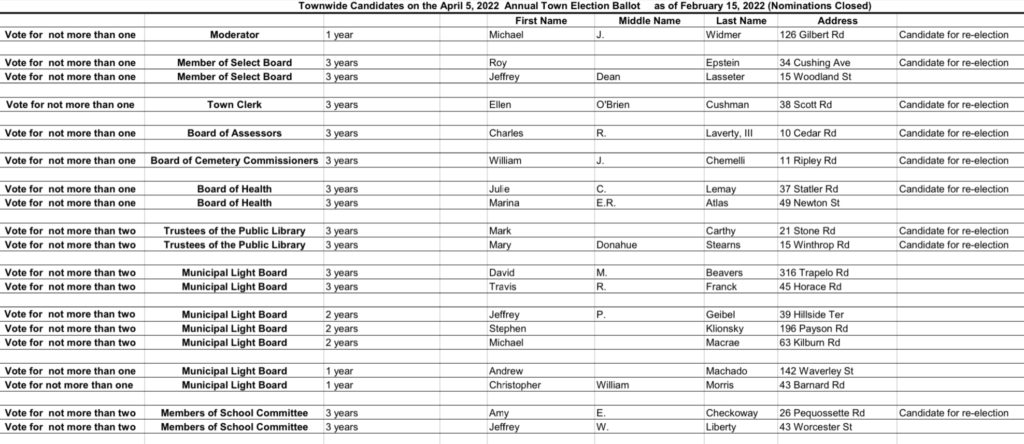Photo: A pair of vaccine clinics in Belmont this coming week.
You’ll have a pair of opportunities to receive for free a first, second or booster Covid-19 vaccine shot in Belmont this coming week.
Residents will need to resent insurance cards, photo ID, and vaccination cards at their appointment.
On Tuesday, March 22, from 10 a.m. to 11 p.m. at Belmont Town Hall, 455 Concord Ave., the Belmont Health Department will provide the Pfizer vaccine to one of two groups of residents:
- Residents 5 to 11 years old can sign up to receive the 1st or 2nd dose* of the pediatric Pfizer vaccine.
- Those 12 year old and older can register to receive the 1st, 2nd* or booster dose of the adult Pfizer vaccine.
Register for an appointment at Belmont Town Hall at: https://www.appointmentquest.com/scheduler/2180061935?schedule+belmontvaccineclinic
On Wednesday, March 23, from 9 a.m. to 1 p.m. at The Belmont Council on Aging 266 Beech St., the Beech Street Center is offering Moderna COVID-19 vaccines to individuals 18+ to receive their 1st, 2nd or booster dose of the adult Moderna vaccine.
Register for an appointment at the Beech Street Center here: https://hipaa.jotform.com/220694271484157
*As long as it has been 5+ months since their second dose of Moderna or Pfizer, or 2+ months if they received the Johnson and Johnson vaccine.
If there is any difficulty with registering, call 617-993-2977 or email Dbickelman@belmont-ma.gov for assistance
